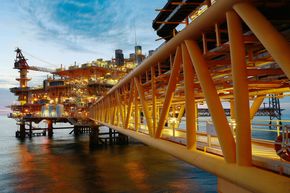Machine Lubricant Analyst (MLA) – Level II Training

- April 7, 2026 - April 9, 2026
- 10:00 AM to 05:00 PM PST (Pakistan Time)
- Total Seats: 10 Reserved Seats: 5
- In-person ( Face to Face )
- +92 337 777 1309
- jahanzeb.burki@velosiaims.ae
-
Velosi is conducting Machine Lubricant Analyst (MLA) – Level II Training.
The Machine Lubricant Analyst (MLA) – Level II Training is designed to equip maintenance and reliability professionals with advanced knowledge and practical skills in lubricant analysis and condition monitoring. Building on foundational concepts, this course focuses on the interpretation of oil analysis data, lubricant selection, contamination control, and proactive maintenance strategies. Participants will gain the expertise needed to identify and prevent machinery failures, optimize lubrication practices, and support reliability-centered maintenance programs in line with international standards.
-
By the end of this training, participants will be able to:
- Understand advanced lubrication concepts
- Recognize the role of lubrication in equipment reliability and performance.
- Interpret oil analysis test results
- Analyze data to detect signs of potential machine failures.
- Select appropriate lubricants
- Match lubricants to machine types and operating conditions.
- Develop contamination control strategies
- Design effective plans to minimize and manage lubricant contamination.
- Apply correct lubricant sampling and storage practices
- Use proper techniques for sampling, handling, and storing lubricants to ensure data integrity.
- Recommend corrective actions
- Propose maintenance actions based on oil analysis findings and reliability standards.
- Enhance predictive maintenance programs
- Utilize oil analysis to support proactive maintenance strategies.
- Align with international lubrication standards
- Apply practices in line with industry guidelines (e.g., ICML).
- Understand advanced lubrication concepts
-
Training will be conducted Face to Face.
-
03 days from 10:00 AM to 05:00 PM (Pakistan Time).
-
- Presentation Slides
- Study References
-
Certificate will be issued upon successful completion of training.
-
This training program is designed for:
- Maintenance and reliability engineers
- Lubrication technicians and specialists
- Condition monitoring and predictive maintenance personnel
- Equipment and asset managers
- Plant engineers and operations supervisors
- Professionals preparing for ICML MLA Level II certification
The course is particularly valuable for those seeking to advance their skills in lubricant analysis and contribute to enhanced equipment performance and reliability.
-
Education and/or Experience
Candidate must have 24 months experience in the field of lubricant-analysis-based machinery condition monitoring (based on 16 hours minimum per month of experience). This represents a minimum of 384 hours spread consistently over two years.
Hold Level I Machine Lubricant Analyst (MLA) certification OR
If you do not hold the MLA I certification, perhaps you can qualify as a “Mature Entry” candidate. You will need to provide 1) a signed letter from your supervisor outlining your 576 additional hours of work experience in the field of lubricant-analysis-based machinery condition monitoring and detailing your duties performed and 2) the letter should also outline the types of informal trainings you have received as they are relevant to the MLA I Body of Knowledge adding up to a minimum of 24 hours of training.
Course Outline
-
Lubricant Roles and Functions
- Base oil
- Additive functions
- Synthetic lubricants
- Lubrication regimes
- Troubleshooting lubrication problems
-
• Oil Analysis Maintenance Strategies
- Fundamental aspects of Reliability-Centered Maintenance (RCM)
- Fundamental aspects of Condition-Based Maintenance (CBM)
-
Oil Sampling
- Objectives for lube oil sampling
- Equipment sampling
- Sampling methods
- Sampling process management
-
Lubricant Health Monitoring
- Mechanism of lubricant failure
- Thermal degradation
- Testing for wrong or mixed lubricants
- Advanced lubrication techniques
- Fluid properties test methods and measurement units
- Viscosity and viscosity index
- Oxidation and thermal stability
- Air release and foam control
- Acid number
- Base number
- Water contents
- Rotating Pressure Vessel Oxidation Test (RPVOT)
-
Lubricant Contamination Measurement and Control
- Particle contamination
- Moisture contamination
- Glycol coolant contamination
- Soot contamination
- Fuel contamination (fuel dilution in oil)
- Techniques for controlling air contamination (air in oil)
-
Wear Debris Monitoring and Analysis
- Common wear mechanisms
- Detecting abnormal wear
- Wear debris analysis
-
Lubricant Selection and Consolidation
Past Trainings
| From | To | Status | Type |
|---|---|---|---|
| April 7, 2026 | April 9, 2026 | Upcoming | Training |
| December 16, 2025 | December 18, 2025 | Completed | Training |
| October 7, 2025 | October 9, 2025 | Completed | Training |
| August 27, 2025 | August 29, 2025 | Completed | Training |



